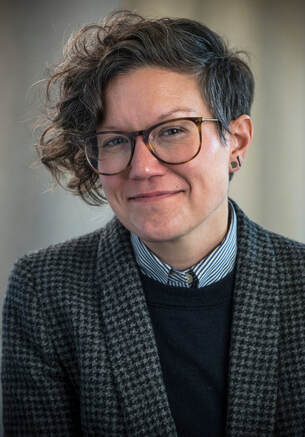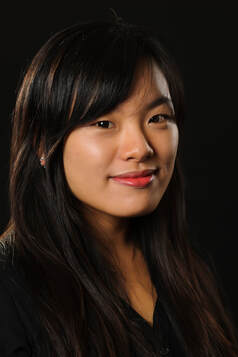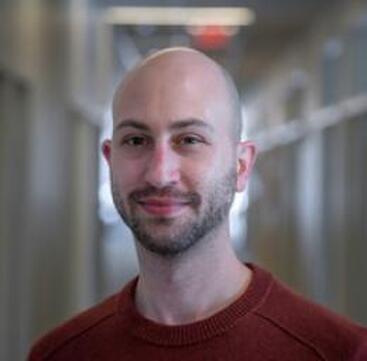Welcome to the University of Massachusetts, Amherst
Center for Justice, Law, and Societies
Upcoming Events
Register for Northeast Law and Society Retreat:
Announcements
Meet our 2023 Graduate fellow Cohort
CJLS Welcomes Its Third Graduate Fellow Cohort. Graduate students will receive mentorship from the CJLS community, help select speakers of the Five College CJLS Speaker Series, and receive up to $1000 to attend an interdisciplinary law related conference.
Sharonee Dasgupta is a third year PhD student in Anthropology and Women, Gender, and Sexuality Studies. Their project is an ethnographic study of women’s work on the border of India and Bangladesh.
Nefeli Forni is a fifth year PhD student in Comparative Literature. Their project focuses on utilizing legal frameworks to understand sexual tourism.
Raymond Carahar is a fifth year PhD student in Economics. Their project seeks to understand the implications of abortion restrictions in the wake of the Dobbs decision.
Seth Kershner is a second year PhD student in History. Their project will focus on the politicization of military prisoners during the Vietnam war.
Gaye Ozpinar is a third year PhD student in History. Their project will work with immigration and labor law with a focus on undocumented immigrants.
Gorana Gonzalez is a fourth year PhD student in Psychology. Their project will focus on how children understand and experience the police and policing.
Sharonee Dasgupta is a third year PhD student in Anthropology and Women, Gender, and Sexuality Studies. Their project is an ethnographic study of women’s work on the border of India and Bangladesh.
Nefeli Forni is a fifth year PhD student in Comparative Literature. Their project focuses on utilizing legal frameworks to understand sexual tourism.
Raymond Carahar is a fifth year PhD student in Economics. Their project seeks to understand the implications of abortion restrictions in the wake of the Dobbs decision.
Seth Kershner is a second year PhD student in History. Their project will focus on the politicization of military prisoners during the Vietnam war.
Gaye Ozpinar is a third year PhD student in History. Their project will work with immigration and labor law with a focus on undocumented immigrants.
Gorana Gonzalez is a fourth year PhD student in Psychology. Their project will focus on how children understand and experience the police and policing.
meet our summer 2023 Undergraduate research assistants
The Center for Justice, Law, and Societies (CJLS) and SBS RISE are excited to announce their research assistants and faculty mentors for the second annual CJLS/SBS RISE Summer Research Assistantship for summer 2023. This initiative allows faculty members to mentor students from the SBS RISE community on research projects, an important high-impact practice that can provide students with valuable skills for graduate school and employment. Through a competitive process, faculty members were selected to serve as mentors, while students were selected to work with them. Students will receive routine mentoring sessions with their faculty mentor, and research skills training through the Institute for Social Science Research, and a $5000 summer stipend, courtesy of a generous donation from two of our SBS alumni.
This research project aims to understand the burdens associated with obtaining need-based financial aid and/or student loan debt relief, how these burdens can be reduced, and to explore participant’s experiences of power, privilege, and the politicization of their efforts to obtain a college degree and secure debt cancellation benefits for which they are eligible.
This research project is to develop foundational research on effective communication strategies for older adults who are crucial to society, but are often the most neglected members of the public. Even though the number of older individuals has been increasing in this rapidly aging world, there has been a little research on how to effectively communicate with them.
This research project is to develop foundational research on effective communication strategies for older adults who are crucial to society, but are often the most neglected members of the public. Even though the number of older individuals has been increasing in this rapidly aging world, there has been a little research on how to effectively communicate with them.
This project examines the nature and consequences of news coverage of racial population projections that continue to chart fast-rising racial and ethnic diversity in the U.S. In contrast to prior studies that have focused narrowly on news framing of Whites and consequent effects on White anxiety, this project will use an upcoming Census release in summer 2023 to document the full range of news frames around racial projections – about the changing demographics of Black, Latinx, Asian, multiracial, and White Americans.
CJLS Graduate Fellow Wins NIJ Fellowship
Public Health graduate student Faith English used her time as a CJLS Fellow to develop her dissertation proposal on the study of youth and cannabis legalization policies. The National Institutes of Justice just awarded her $110,000 over the next two years to complete her study.
View award here.
Congratulations Faith!
View award here.
Congratulations Faith!
CJLS Graduate a Faith English featured in UMass News
The Center for Justice, Law, and Societies (CJLS) strives to foster research, teaching, and public engagement related to bias, inequity, and inequality in the law. We provide a vehicle to support interdisciplinary research that is policy-relevant and also theoretically generative. We bring together faculty and graduate students across the university working on Law and Society topics that are vital to domestic governance, such as access to justice for vulnerable populations, how court decision making shapes public policy, and the relationship between law and new technologies. In addition to our expertise in domestic law and society, we also pressing global challenges, supporting research related to international law, globalization, migration, and cross-border conflict resolution.
Want to Support the
UMass Center for Justice, Law, and Societies?
If you are interested in supporting the Center and its mission, follow the link below and list the Center for Justice, Law, and Societies under "gift designation" and "special instructions". Your support can go to research opportunities for students, public events, or other designated activities.
Thank you!
Thank you!






